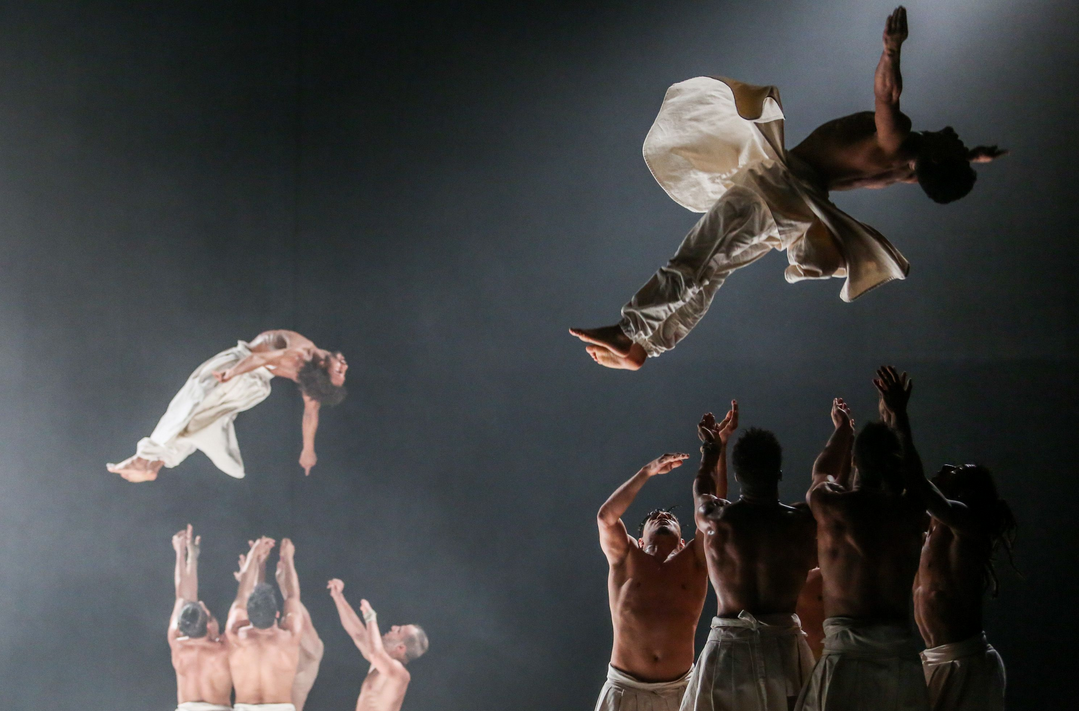Author S.H. Fernando. Photo credit: The author
Book Review:
“From The Streets of Shaolin
The Wu-Tang Saga”
Author: S.H. Fernando Jr.
Publication date: July 6, 2021
Publisher: Hachette Books
Pages: 528
Reviewer: Gillian Glasco
Clan, crew, group, brotherhood. No matter how you slice it, the story of the Wu-Tang Clan “Ain’t Nuthing to Fuck Wit”. As their self-identifying battle cry states and sonically resonates on track 7 of their debut album “Enter the Wu-Tang (36 Chambers)”, S.H. Fernando Jr. takes us on a journey of Hip-Hop at it’s highest form. Chronicling not only the highs and lows of this super group, but lays out a reverent roadmap that made these men Hip-Hop royalty. Not only is S.H. Fernando Jr. a fan of the Wu-Tang Clan, but he’s a well-versed Hip-Hop historian and a part of the culture.
“From The Streets Of Shaolin” is a story of grit, joy, hunger, excitement, and vision. The out-siders from the forgotten borough, struck out on a mission, to not only infiltrate the Hip-Hop industry, but lift their communities and ascend to heights that seemed impossible. Freedom was the goal.
RZA, GZA, OL’ Dirty Bastard, Method Man, Raekwon, Ghost Face Kill-a, U-God, Inspectah Deck, Masta Killa, and Cappadonna—who later became an official member after the original 9—were the children of the Post-Civil Rights era, where the lack of opportunity, crack, and the war-on-drugs, swept them all up into poverty, hustlin’, crime, incarceration, and being victims and perpetrators of violence in various ways. The environments these men had to survive was nothing short of terror. But they all found a respite in this burgeoning art form, of Hip-Hop.
As we follow the early beginnings of Hip-Hop when DJ Kool Herc was bringing the party to the people in the Bronx, 1973, to raise money for his sister’s school clothes, to Bobby Diggs’s (RZA) love affair with Kung Fu films, sneaking away to The Deuce in Times Square to watch films like “The 36th Chamber of Shaolin (77)”, these movements would light the fire of imagination and the power to create a world all their own.
RZA, the leader, always had a vision for Wu-Tang domination. And each member would play an integral part in that mission. Every member had their own unique energy, quality, and cadence. Many would say a group of this size is too much to handle, but their mentality of it’s all of us or none of us, is what made them an irrefutable force, it’s what made them special, it’s what made them magic.
They competed with each other, verse for verse, seeing who could top the next. This sharpened their skills and made them masters of their craft. The synergy of being all together, writing, rhyming, smoking, drinking, and crashing in RZA’s basement was a recipe for a multi-layered eruption of lyrical genius. This organic collective of cousins and friends, who’s mothers knew each other, and grew up fighting the same fights and dreaming the same dreams, gave their all to have a shot at something better.
RZA, a man of nostalgia, would become the definitive sound of Wu-Tang as the producer. From Thelonious Monk to his affinity for Stax Records’s artists, RZA established himself as the soulful, wise “Abbot”, of a crew who wanted a way out. And all the emcees had the skills to back it up and ride those beats. S.H. Fernando Jr. breaks down how RZA elevated the art of beat making/producing and illuminates just how intricate it is.
The crew was also deeply rooted in the Five-Percent Nation (Nations of Gods and Earth), a branch from the tree of the Nation of Islam. S.H. Fernando Jr. informs us that “So much slang from the rap lexicon—words and phrases like “bomb”, “cipher”, “dropping’ science”, “break it down”, “show and prove”, “right and exact”, “word is bond”, and even using “peace” as a greeting—derived from Five-Percenter vernacular.
In addition to ushering in, what we know now as Hip-Hop vernacular, The Wu-Tang Clan believed in the teachings of Supreme Mathematics, under the tutelage of the Five-Percenters. The knowledge of the Five-Percent Nation is what made them strive for understanding and self-actualization beyond the confines of the projects and police. As Black men, it gave them confidence and a guide that showed them they had something to contribute. This would be a grounding principle of the group. “…the first thing they taught us was knowledge, which was 1, and that means to look, listen, observe, and respect where you at. Then you act upon it, which is wisdom. Wisdom is just a manifestation of knowledge,” RZA says, in the book. They were keenly aware that what they were aiming to do was bigger than them. “If a man don’t know himself he can’t know nobody else,” he adds.
One of the most ground-breaking feats of the Wu-Tang clan is the revolutionary record deal RZA orchestrated. “Wu-Tang became the first rap group in history whose individual members were eligible to sign with other labels…” S.H. Fernando writes. “So, what happened is now you have major labels who are in competition with each other now working for the same cause without being aware of it…Before Wu-Tang, you couldn’t find many MCs that was really straight from the projects — ex-felons who would never have a job, life would be over. Seven out of nine of us are high school dropouts and basically the ones that society would write off as dead or in jail by twenty-five…bring the real people into the music industry, the people that was feeling it (hip-hop) and living it, you know what I mean, and changed the game”. This would solidify Wu-Tang’s ingenuity and audacity. They were here to stay.
Armed with every metaphor, a knack for story-telling, and being self-proclaimed swordsmen of the tongue, the Wu-Tang clan burst in the door with their raw debut album, “Enter the Wu-Tang (36 Chambers)”, and never looked back. They made good on the plan, to consistently release material, giving individual members the opportunity to release solo projects and become stars in their own right, tour all over the world, and spread the Wu dynasty through fashion, movies, and all aspects of entertainment. They resonated with fans who wanted authentic, pure, lyrical hip-hop, at a time when the landscape was changing to something more commercial and pop. The Clan disturbed all of that and took it back to the roots. And they weren’t glorifying or glamorizing street life, they were living it. These were cautionary tales and a desire to get out. It was therapy.
S.H. Fernando Jr. masterfully leads us into the world of the Wu-Tang Clan, celebrating every triumph and truthfully dissecting their downfalls and self-sabotage. Digging deeply into their discography, his tribute to their body of work feels like a love letter. He captures their evolution as men and their rise to international stardom beautifully. Music saved their lives and their legacy will continue to give hope and inspiration to others.
RZA is quoted as saying, “I think once you are aware of the beauty of music, you could find it almost anywhere.” And he’s right, you can find that beauty anywhere, even in the unsuspecting shadows of Staten Island.
Book Reviewer: Gillian Glasco.







